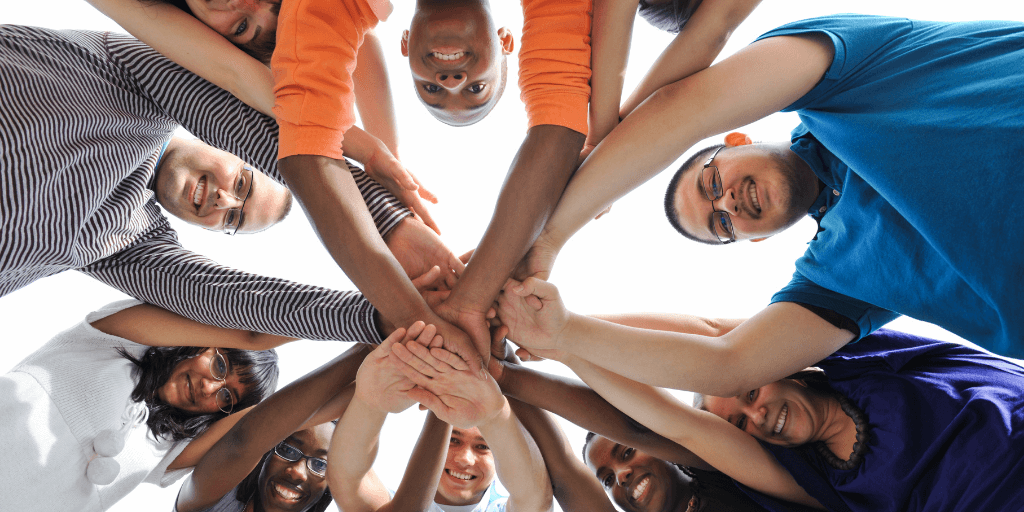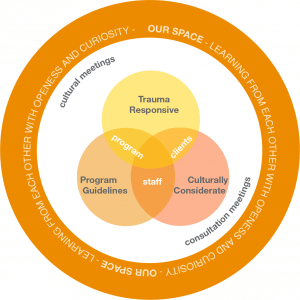
Creating safety through small acts of reconciliation
‘Creating safety through small acts of reconciliation’ blog article was written by Sue Buratti, Program Manager, Therapeutic Services, NSW at Australian Childhood Foundation.
At its heart, reconciliation is about strengthening relationships between Aboriginal and Torres Strait Islander peoples and non-Indigenous peoples, for the benefit of all Australians.
OurSPACE is a program in the NSW landscape. Funded in October 2019, the program began receiving referrals in December 2019. As a specialist trauma therapeutic service, we work to achieve stability with some of the most vulnerable children and young people in state care, recognising that placement stability and relationship permanence are the significant factors leading to positive developmental, education and health outcomes for children and young people in care.
Aboriginal children and young people are overrepresented and under-accounted for in out-of-home care (OOHC) in NSW, and during the early implementation of OurSPACE it became clear that to meet the needs of Aboriginal children and their communities in a genuine way, it was necessary to provide a response that was thoughtful of both their cultural, and trauma backgrounds. To be successful, we knew it was essential that this approach felt safe and meaningful to the families and our team members who provided it.
It was noted that kinship carers were often untrusting and disengaged from their caseworkers and systems of support due to fear, which was largely motivated by the sensed threat of removal of the children in their care. These carers told us that they felt if they asked for help, it may have appeared they were not coping or unable to meet the needs of their children. We needed to reshape the program to better enable trust and safety and to prioritise relationships that enable stability. Careful planning and a continuous cycle of review and improvement have seen us develop strong relationships across NSW and seen OurSPACE provide support to over 500 Aboriginal children in under two years.
 Within the first year of operating, our Aboriginal workforce increased to reflect the percentage of Aboriginal children who were being referred –60% – along with the employment of an Aboriginal Team Leader who provided supervision for both non and Aboriginal staff. Together, we developed a model which had three key aspects included in all decision-making:
Within the first year of operating, our Aboriginal workforce increased to reflect the percentage of Aboriginal children who were being referred –60% – along with the employment of an Aboriginal Team Leader who provided supervision for both non and Aboriginal staff. Together, we developed a model which had three key aspects included in all decision-making:
Trauma Responsive Practice, Cultural Consideration, and Program Guidelines. These elements supported the requirements of the program, clients, and staff.
Regular consultation meetings were held which considered all aspects of our service delivery through this lens.
Our Aboriginal team also held cultural meetings separately to discuss aspects of cultural practice where relevant information was shared to inform change or initiate broader discussion. These Aboriginal team members reflected that these meetings supported them in a way that promoted trust and empowerment. From here, pertinent information was shared with the Manager to inform and direct programmatic change as needed. Processes and systems were able to rapidly change and adapt to match the cultural and therapeutic needs of Aboriginal people.
After all, culture is family and family is what the children in the OurSPACE program needed.
In addition, we found that our non-Aboriginal team members became increasingly curious and engaged in a change process that felt not only safe and responsive to the Aboriginal children but to all children. Traditional ways of thinking about kinship and connection to country and community are seen as essential to healing. After all, culture is family and family is what all the children in OurSPACE needed. We began including these qualities in our therapeutic planning and created a climate where learning from each other, being open and curious in our demeanour, was at the heart of our culture, and at different times, we were each teachers and learners.
We created a climate where learning from each other, being open and curious were at the heart of our team culture. At different times we were each teachers and learners.
Our Aboriginal team members courageously shared their understanding of what it meant to be an Aboriginal person working in the context of removal and children in OOHC, some of whom had this lived experience. It was repeatedly shared that being able to have a voice that prompted change was paramount to building trust and safety. “Having a voice is not just allowing free speech amongst the team but responding to it with tangible change”.
Our commitment to enduring growth and change in the face of this challenging work for Aboriginal people, with their people, is crucial to the success of our program and our whole team’s wellbeing. We need to emphasise the contribution of Aboriginal staff in a way that demonstrates their value and impact on us all by receiving it with openness and allowing it to influence and change things for the betterment of all.
Subscribe to the Professionals Newsletter
Join our community of more than 40,000 professionals from around the world who receive our weekly newsletter containing articles. Our newsletters help connect you to our blog, research, and free resources as they are produced. We also keep you informed on training opportunities including access to experts in the field, webinars, international speaker tours, conferences and more.
